New book by eminent historian casts shadow on legacy of Iowa's Henry A. Wallace
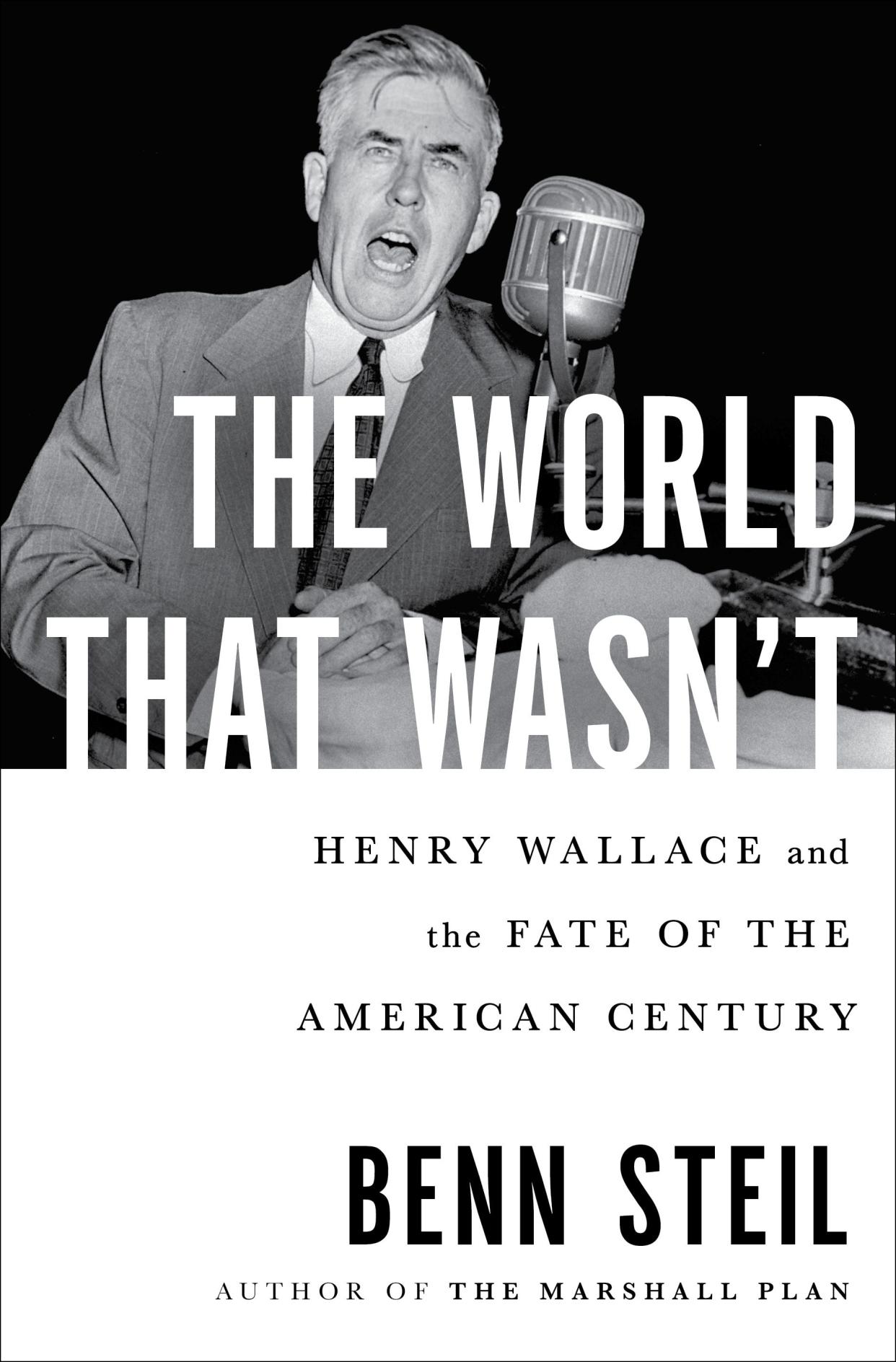
Drawing on what he says are previously undisclosed Soviet records, an award-winning historian asserts in a new book that Henry A. Wallace, an Iowan who was a heartbeat away from the presidency, was even closer with the Russians than previously depicted ― at one point letting dictator Josef Stalin edit one of his most important political speeches.
Published in January, “The World that Wasn’t: Henry Wallace and the Fate of the American Century,” is a biography of Wallace as well as a hypothesis about how the world may have been different had the Des Moines-raised politician, publisher and agronomist, vice president from 1941 to 1945, succeeded President Franklin D. Roosevelt.
Instead, Wallace (1888-1965) was dumped from the ticket before Roosevelt won a fourth term, and Wallace's replacement, Harry Truman, ascended to the presidency when Roosevelt died in 1945.
Author Benn Steil is a senior fellow, director of international economics and official historian at the Council on Foreign Relations, a highly influential nonpartisan think tank. He has won acclaim and major awards for previous histories, particularly his "The Marshall Plan: Dawn of the Cold War," published in 2019.
The same perilous period ― when the Soviets went from being a wartime ally to the nuclear-armed rival of the United States ― is at the core of Steil's 600-page biography of a man he told the Des Moines Register "is simply one of the most fascinating political figures of the 20th century.”
Wallace's journey from progressive Republican to New Deal architect
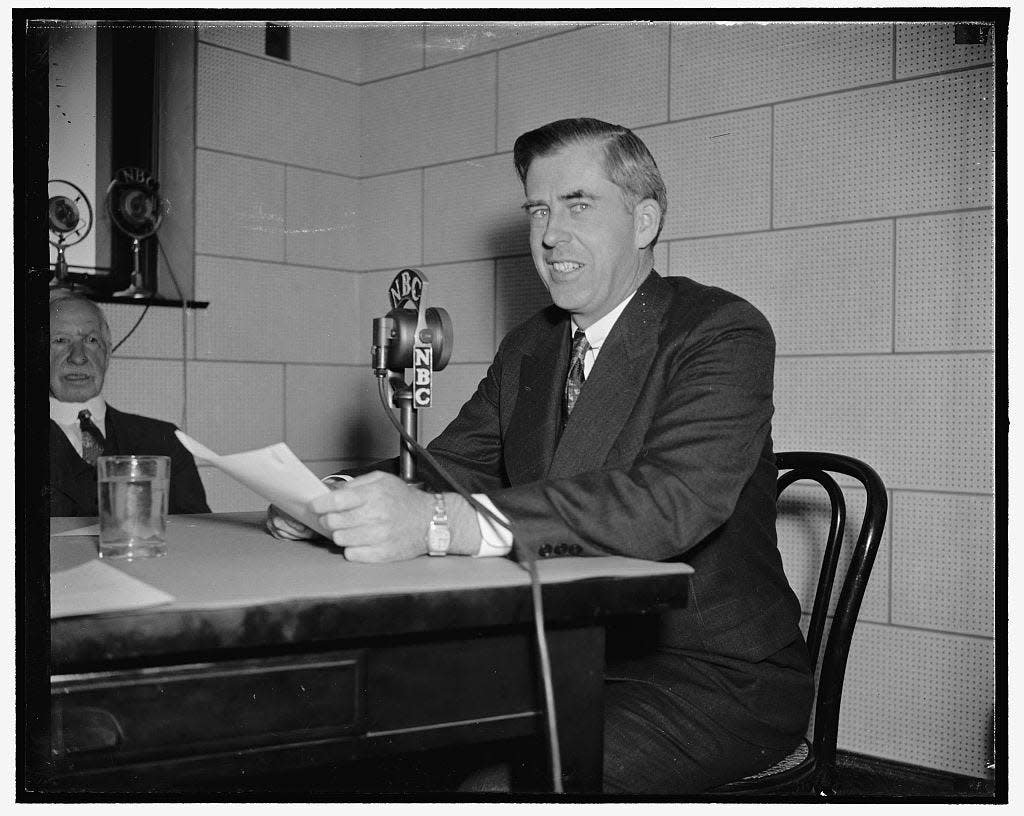
Wallace was born on his father's farm near Orient in Adair County. He grew up first in Ames, where his father was a student, then an agriculture professor, at Iowa State Agricultural College, now Iowa State University. When Wallace was 8, the family moved to Des Moines, where his father and eventually he, too, joined his grandfather in editing Wallace's Farmer, a widely circulated magazine that promoted scientific farming.
A budding scientist who as a teen experimented with growing strains of corn on a family plot in the Drake neighborhood, Wallace graduated from Iowa State and later founded the Pioneer Hi-Bred hybrid corn seed company. The business, an early leader in developing and popularizing what became the dominant strains of field corn, is now part of Corteva Agriscience in Johnston.
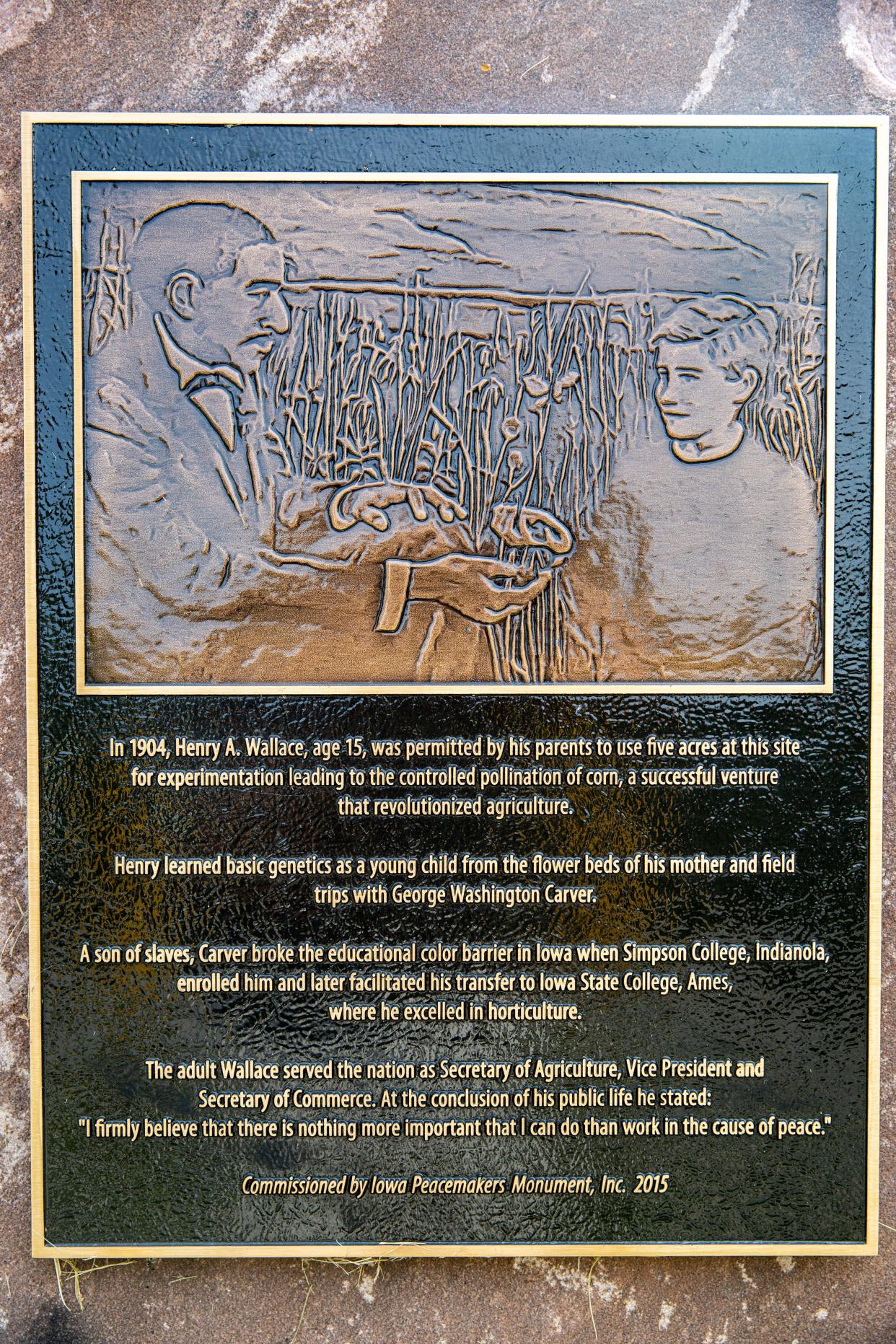
The Wallaces were staunch progressive Republicans, and Wallace's father served as U.S. secretary of agriculture in the Harding and Coolidge administrations before dying in office.
Wallace was a bitter foe of fellow Iowa Republican Herbert Hoover, who as secretary of commerce during the Harding and Coolidge presidencies feuded with his father over farm policy. Hoover succeeded Coolidge, and when he sought a second presidential term, Wallace endorsed and campaigned for New York Democrat Roosevelt and, like his father, became agriculture secretary.
More: Hoover library, museum to get $5 million in latest round of Destination Iowa grants
During the New Deal era, as farmers struggled through the Great Depression, Wallace worked to institute farm support policies that laid the foundation for modern U.S. agriculture. He served as vice president in Roosevelt's third term, during the heart of World War II.
Author: Had Wallace been president, Cold War would have come later, with US at disadvantage
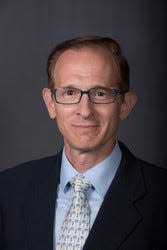
The contention that Wallace was overly sympathetic to the Soviets both as vice president and later as a Truman critic, is not new. Published in 2000, “American Dreamer: A Life of Henry A. Wallace,” by former U.S. Sen. John Culver and former Des Moines Register reporter John Hyde, also explores the controversy, which led to Wallace's unceremonious replacement with Truman at the 1944 Democratic National Convention.
But Steil’s book is harsher to Wallace’s legacy than Culver and Hyde's, which focuses more on his achievements as a New Deal architect.
Utilizing documents from Russia and the FBI, Steil, a senior fellow and director of international economics at the Council on Foreign Relations, portrays Wallace as deeply naive about the Soviets and their post-war intentions.
In an interview with the Register, Steil said he wants readers of the book to “contemplate this counterfactual of what might the world have been today, the world we live in if things had gone a little bit differently in 1944 and particularly over two days in July at that convention. We could be living in a very, very different world today."
Steil said he became fascinated with Wallace after filmmaker Oliver Stone’s 2012 documentary series “The Untold History of the United States” that, among other unconventional positions, held that the Cold War could have been avoided had Wallace ascended to the White House.
Wallace believed that Russia wanted peace and that the U.S. should avoid escalating its nuclear weapons program after World War II.
Steil, who credits noted Russian historian Svetlana Chervonnaya for assembling thousands of pages of documents, notes, translations and detailed commentary used as reference material for the book, said he found the Soviets took cynical advantage of Wallace's dovishness. When Wallace toured the Soviet Union, Steil said, his escorts carefully steered him away from evidence of Stalin's brutality. And when Truman took a hard line against the Soviets as president, creating NATO to oppose them in Europe even before Russia developed its own nuclear weapons, Wallace criticized his policies and ran against him as the Progressive Party nominee in 1948.
Steil found that Wallace, working through intermediaries, had even allowed Stalin to edit a draft of his major speech of the campaign, in which he vehemently opposed the so-called Truman doctrine of communist containment.
“I had lots of really phenomenal documentation from the Russian archives which indicated that the Soviets, certainly over the course of the 1940s, were simply using him, basically as a useful idiot in order to undermine American foreign policy. But they were uninterested in his peace initiatives, except as ways to exploit them,” he said.
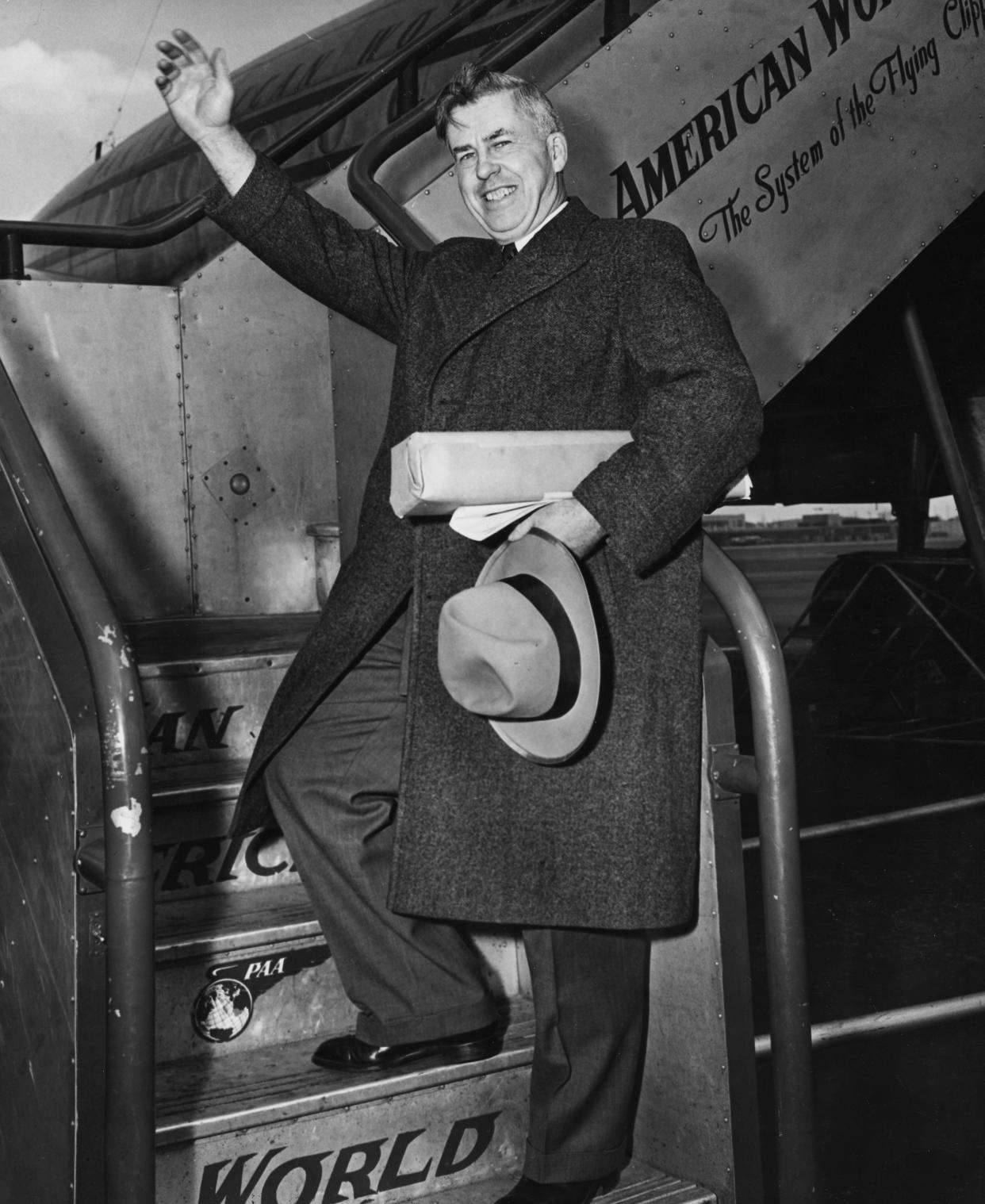
He concluded, at odds with Stone, that there would have been a Cold War even with Wallace as president, but that its onset would have been delayed.
“It would have started three years later with the United States at a very significant disadvantage,” Steil said.
He said Wallace himself admitted as much, citing a 1952 public letter entitled “Where I Was Wrong” in which he wrote: “Before 1949 I thought Russia really wanted and needed peace. After 1949 I became more and more disgusted with the Soviet methods and finally became convinced that the Politburo wanted the Cold War continued indefinitely, even at the peril of accidentally provoking a hot war.”
But Wallace also wrote that he had risked his public career in the interest of promoting peace between the U.S. and Russia and that he believed that had Roosevelt remained alive and in good health, history would have been different, and the two countries would not have been in an arms race.
“What I wanted was peace, but not peace at the price of Communist domination. I thought the Soviets had more sense than to do what they have been doing during the past few years,” he wrote.
Wallace's grandson: Book should be titled 'The Henry Wallace that wasn't'
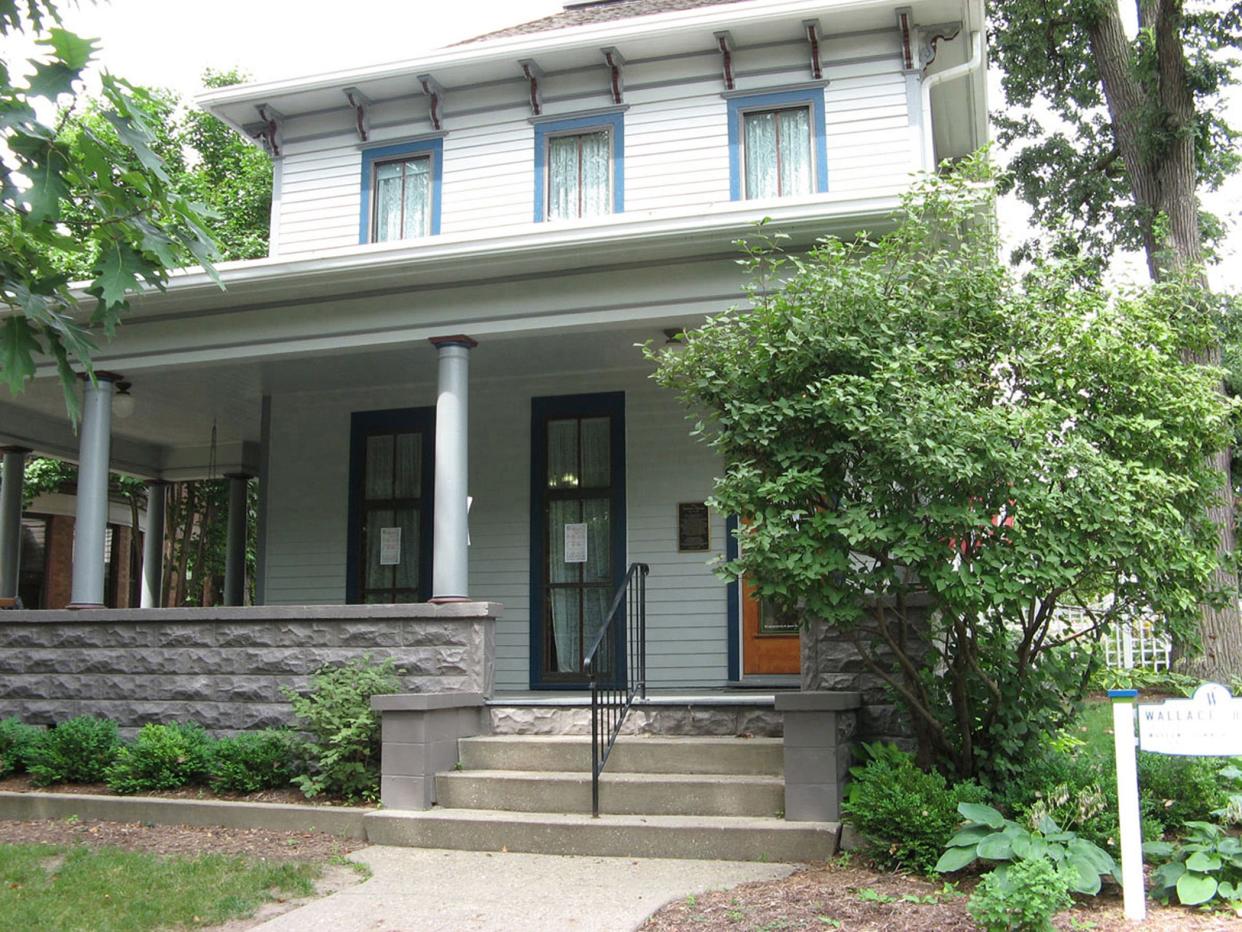
Steil's book has met with praise from reviewers, especially in conservative-leaning publications like the Wall Street Journal and the National Review.
But it also has its critics, none perhaps more vehement than Wallace’s grandson, David Wallace Douglas, 75, of Santa Fe, New Mexico.
In a letter penned to the Wall Street Journal soon after the book was released, Douglas wrote: “…The World That Wasn’t” would be better titled “The Henry Wallace That Wasn’t.”
In an email to the Register, Douglas wrote, “The book describes itself as a ‘political biography’ but it resembles instead a prosecutorial screed, vacuuming up negative facts and comments about Henry A. Wallace and skimming over his accomplishments in the Cabinet and as Vice President.”
More: From the archives: Farmer Roswell Garst brought Soviet leader Nikita Khrushchev to Iowa
While Douglas admits his grandfather often was viewed as “pro-Soviet,” he wrote that it was because Wallace had a genuine interest in forging a friendlier relationship with Russia and avoiding conflict ― the kind of conflict that an escalating arms race created in the Cold War.
“There’s no question that toward the later 1940s he was seen as “pro-Soviet,” but very rarely did even Wallace’s adversaries charge him as being ‘pro-Communist’ since Wallace had made it clear he didn’t approve of Communism, and thought Marxism Godless, likely to be eclipsed in economic competition with the U.S.
“In most of his public utterances, except for a period near the end of the Progressive Party run where he blamed the U.S. excessively for provoking Russia, he was even-handed in his criticism of both the U.S. and USSR. That passed in those years for ‘pro-Soviet,’” Douglas wrote.
He said the communication his grandfather had with Stalin was distorted in Steil’s book.
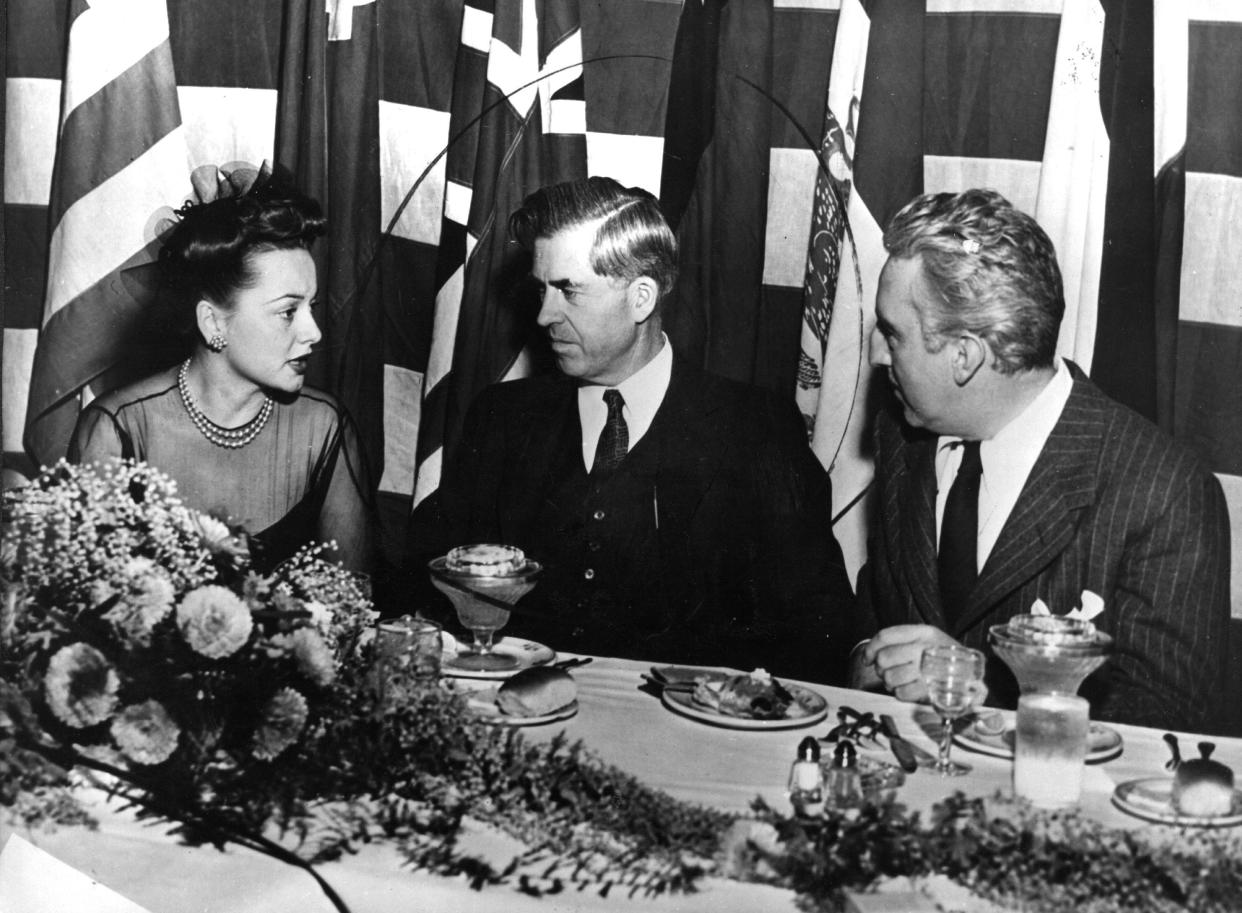
“I was not surprised ... that Steil excoriated the indirect secret Wallace-Stalin communication. Labeling it with the loaded word (given the Trump campaign) ‘collusion,’ Steil paints Wallace’s actions as alternatingly sinister and comical," he wrote. "Seen through Steil’s distorted lens, Wallace’s actions were motivated by an effort to disrupt the 1948 election, not because as is evident from Wallace’s 'Oral History' (and indeed his efforts for peace throughout his life) Wallace felt that the world was poised on the brink of military confrontation with the Soviet Union.”
As for how history would have been written had his grandfather become president, Douglas wrote that Wallace would have encouraged economic, rather than military, competition with the Soviets, and opposed their expansionism; that he would have been far more effective in winning over the Third World because of his opposition to colonialism as antithetical to the values for which the Allies fought in World War II; and that he would have pushed far harder on behalf of such issues as civil liberties, equal pay for equal work, desegregation, and environmental sustainability.
"These policies, most now integrated into the fabric of American life, reflect favorably on Wallace’s vision and are not surprisingly omitted from Steil’s post-1945 scenario, which is essentially limited to a binary focus on U.S.-USSR relations," Douglas wrote,
Steil agrees that Wallace showed considerable courage when he campaigned in the Deep South in 1948, advocating against segregation.
"In the '48 election, he spent a week touring in the South decrying racial segregation, which took enormous physical courage. He could easily have been killed many times during that tour," he said.
'Henry Wallace was an incredibly complex human being'
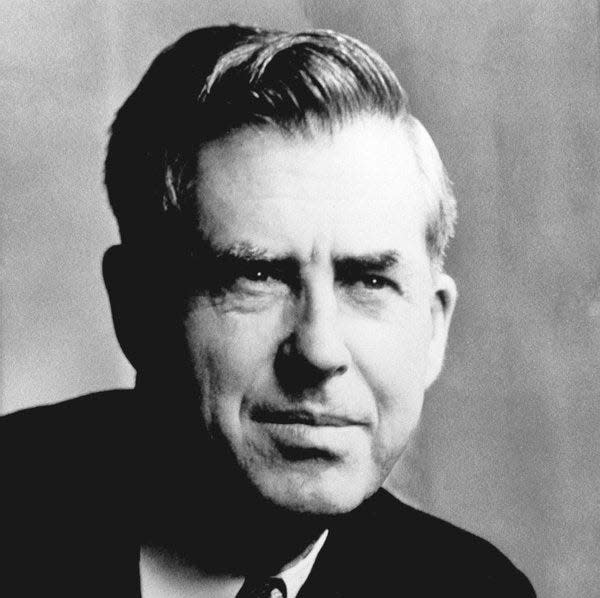
Bill Pratt, a retired history professor from the University of Nebraska-Omaha who has spent time studying Wallace’s papers at the University of Iowa, said Steil’s book is well researched. He does not question its objectivity.
Pratt said his biggest criticism would be the amount of space Steil devotes to Wallace’s fascination with spiritualism.
“He has a long chapter, maybe the longest chapter of the book, on this goofy stuff with spiritualism and so forth. Well, you don't forget about that, but boy, that's a lot of pages,” Pratt said.
Steil said he wants readers to understand that despite his political failings, Wallace ― named by the Register in 1999 as the “Most Influential Iowan of the 20th Century” ― was still an important figure in American history and needs particularly to be remembered for his contributions to agricultural science.
"He's improved productivity of agriculture, not just in the United States but certainly in Mexico and other parts of the world and some of his developments, I've read, were apparently even very influential in India.
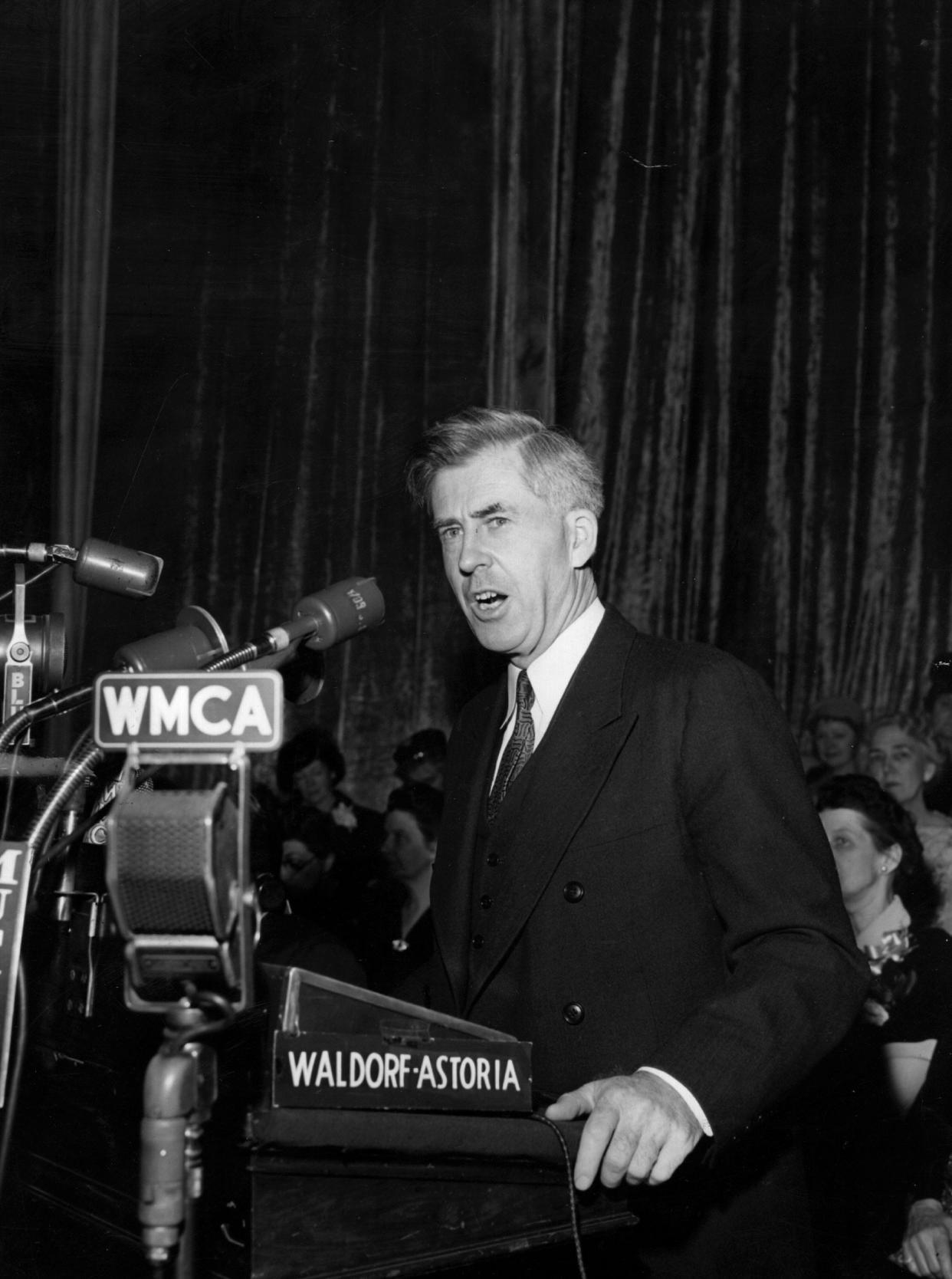
"If he had simply stayed an agricultural scientist and commentator, I think he would be much more positively recognized today across the political spectrum. As you know, he has his fans on the progressive left, but outside of that, he's just not," Steil said.
“Henry Wallace was an incredibly complex human being. He was a brilliant scientist. He was a credulous mystic. … The way these things combined to shape this remarkable political figure who came within a hair's breadth of being leader of the free world, it’s really, really just remarkable. I think it’s a heck of a story,” he added.
Pratt agreed about how compelling the Wallace story is, but said he thinks the length and depth of Steil’s work would likely be too intimidating for the average reader.
“It's for historians, political scientists, journalists. People that follow American foreign policy like the Council on Foreign Relations and crowd.
“You're not going to see a paperback edition of this at the airport,” he said.
Kevin Baskins covers jobs and the economy for the Des Moines Register. Reach him at kbaskins@registermedia.com.
This article originally appeared on Des Moines Register: 'The World That Wasn't' takes critical look at Iowa's Henry A. Wallace
